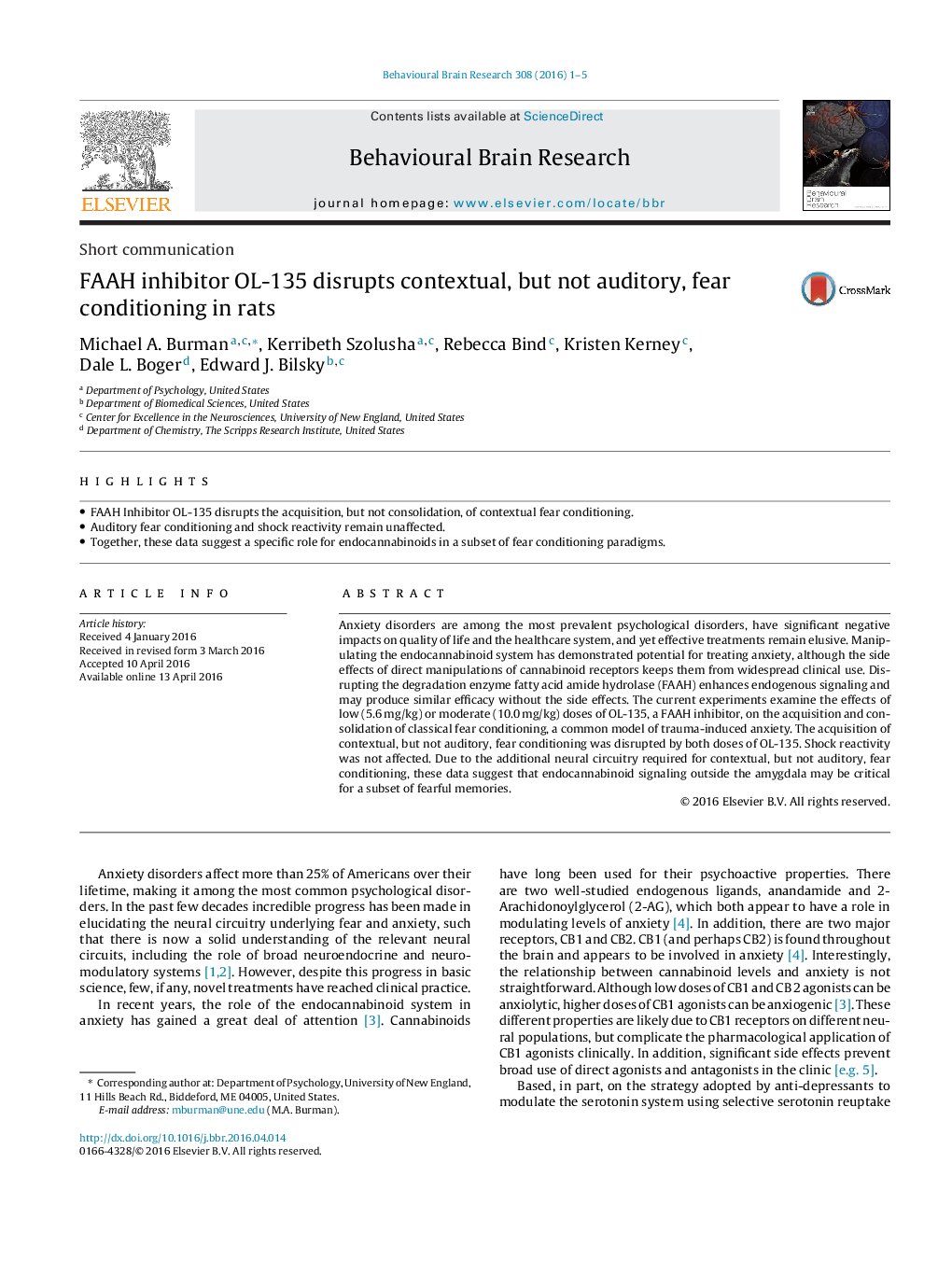| Article ID | Journal | Published Year | Pages | File Type |
|---|---|---|---|---|
| 6256055 | Behavioural Brain Research | 2016 | 5 Pages |
â¢FAAH Inhibitor OL-135 disrupts the acquisition, but not consolidation, of contextual fear conditioning.â¢Auditory fear conditioning and shock reactivity remain unaffected.â¢Together, these data suggest a specific role for endocannabinoids in a subset of fear conditioning paradigms.
Anxiety disorders are among the most prevalent psychological disorders, have significant negative impacts on quality of life and the healthcare system, and yet effective treatments remain elusive. Manipulating the endocannabinoid system has demonstrated potential for treating anxiety, although the side effects of direct manipulations of cannabinoid receptors keeps them from widespread clinical use. Disrupting the degradation enzyme fatty acid amide hydrolase (FAAH) enhances endogenous signaling and may produce similar efficacy without the side effects. The current experiments examine the effects of low (5.6Â mg/kg) or moderate (10.0Â mg/kg) doses of OL-135, a FAAH inhibitor, on the acquisition and consolidation of classical fear conditioning, a common model of trauma-induced anxiety. The acquisition of contextual, but not auditory, fear conditioning was disrupted by both doses of OL-135. Shock reactivity was not affected. Due to the additional neural circuitry required for contextual, but not auditory, fear conditioning, these data suggest that endocannabinoid signaling outside the amygdala may be critical for a subset of fearful memories.
